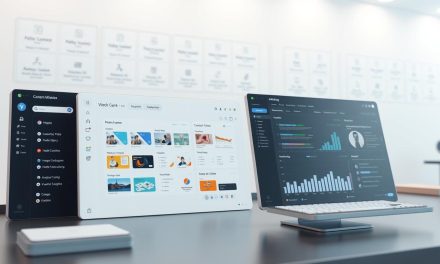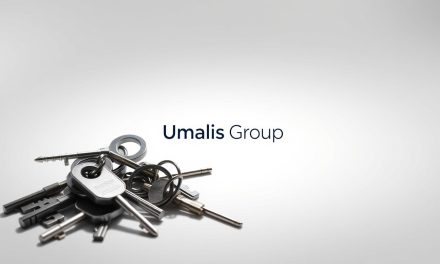Companies today need smart information to grow. They use numbers and patterns to make better choices. This is where skilled experts come in.
Many firms in France now hire specialists for short-term projects. This approach saves money and brings fresh ideas. It helps businesses stay flexible in a fast market.
These professionals offer deep knowledge without long contracts. They work on specific tasks like analysis or system building. This is perfect for companies wanting quick results.
Our guide will show you how to find and work with the best talent. We cover everything from first contact to final delivery. Get ready to boost your business with the right skills!
Table of Contents
Key Takeaways
- Data science drives modern business decisions and growth strategies.
- Freelance experts provide specialized skills without long-term employment needs.
- French businesses increasingly use freelance talent for data projects.
- Market demand for data expertise spans across multiple industries.
- Hiring freelance professionals offers flexibility and cost-effective solutions.
- Proper selection and collaboration ensure successful project outcomes.
- Freelance data specialists bring innovation and fresh perspectives to companies.
What is a Freelance Data Scientist and Why Your Business Needs One
Modern organizations face complex information challenges that require specialized expertise. These professionals bring advanced analytical capabilities to transform raw information into strategic assets.

Defining the Role: Beyond Traditional Data Analysis
These experts handle the complete information value chain. They collect, clean, analyze, and transform complex datasets into actionable insights.
Their work goes far beyond basic number crunching. They develop sophisticated algorithms and intelligence artificielle programs that drive innovation.
« The best professionals don’t just analyze information—they anticipate future trends and create competitive advantages. »
Typical missions include predictive modeling, machine learning implementation, and strategic planning support. Each projet typically spans six months or longer.
How Freelance Data Scientists Differ from In-House Teams
Independent specialists offer unique advantages compared to permanent staff. They bring diverse expérience from multiple industries and projects.
- Flexibility: They adapt to your specific needs and timeline
- Specialized compétences: Deep expertise in particular domaine areas
- Project-based engagement: Focused attention without long-term emploi commitments
This approach allows companies to access top talent without the overhead of full-time positions. Many independent professionals maintain extensive professional réseaux that benefit their clients.
The Strategic Value for Business Growth and Innovation
These experts contribute directly to business strategy through advanced information interpretation. They help companies make better commercial decisions based on solid evidence.
The strategic avantages include:
- Faster innovation cycles through rapid prototyping
- Competitive intelligence from market analysis
- Risk reduction through predictive analytics
Many organizations use these specialists for specific growth objectives. They might analyze customer behavior, optimize operations, or develop new revenue streams.
Proper formation and continuous learning keep these professionals at the forefront of their métier. They bring fresh perspectives that can transform how your entreprise uses information.
For independent professionals seeking to enhance their analytical capabilities, exploring advanced data analysis tools can provide significant competitive advantages in today’s market.
The right specialist can help your organization navigate complex information challenges and uncover new opportunités for growth. Their independent status allows them to focus completely on your success without corporate distractions.
Key Benefits of Hiring a Freelance Data Scientist for Your Business
Organizations gain significant strategic advantages when engaging specialized analytical talent. These professionals deliver immediate expertise without long-term overhead.

Cost-Effective Expertise Without Long-Term Commitment
Independent specialists offer substantial financial benefits. Companies avoid salary commitments, benefits packages, and training expenses.
The French market features nearly 900,000 technical professionals. This creates competitive pricing and quality options.
« 75% of professionals who transitioned to independent work reported increased earnings »
Typical savings include:
- No permanent employment costs
- Pay only for project duration
- Reduced infrastructure investment
This approach lets businesses allocate resources more efficiently. They can invest savings into other growth areas.
Access to Specialized Skills for Specific Projects
Every project requires unique technical capabilities. Independent professionals bring targeted expertise for specific challenges.
Common specialized skills include:
- Machine learning implementation
- Advanced statistical modeling
- Custom algorithm development
These experts often maintain cutting-edge knowledge through continuous formation. They bring experience from multiple industries and projects.
Businesses can access top talent without geographic limitations. This expands the pool of available expertise significantly.
Flexibility to Scale Data Operations as Needed
Market conditions change rapidly. Companies need adaptable analytical capacity.
Independent engagements provide operational flexibility. Organizations can:
- Scale teams up during peak periods
- Reduce capacity during slower cycles
- Test different specialists before committing
This « try before you buy » approach reduces hiring risks. Many businesses eventually hire successful contractors permanently.
The independent statut allows for quick project initiation. There’s minimal administrative delay compared to traditional hiring.
For professionals seeking to enhance their capabilities, exploring advanced data analysis tools provides competitive advantages in today’s market.
These flexible arrangements help companies respond to new opportunités quickly. They maintain competitive agility without fixed cost burdens.
Essential Skills to Look for in a Freelance Data Scientist
Successful project outcomes depend heavily on selecting professionals with the proper skill combinations. The right specialist brings both technical mastery and business understanding to your initiative.
These experts must balance deep analytical compétences with practical communication abilities. Their value comes from translating complex findings into actionable strategies.
Technical Proficiency: Programming Languages and Tools
Strong technical foundations form the core of effective information analysis. Professionals typically master several programming languages and specialized tools.
Python remains the dominant language for most analytical projets. Experts use it for everything from data cleaning to machine learning implementation.
R and SQL complete the essential technical toolkit. R excels in statistical analysis while SQL handles database management.
Key frameworks include:
- scikit-learn for machine learning algorithms
- TensorFlow and PyTorch for deep learning applications
- Tableau and Power BI for visualization and reporting
These tools help specialists handle complex données efficiently. They transform raw information into structured insights.
Statistical Analysis and Machine Learning Expertise
Advanced statistical knowledge separates true experts from basic analysts. This formation enables robust pattern recognition and prediction.
Machine learning capabilities represent the cutting edge of analytical métier. Professionals develop models that learn from information and improve over time.
« The best specialists don’t just analyze what happened—they predict what will happen next and explain why it matters. »
Critical statistical skills include:
- Regression analysis for relationship identification
- Hypothesis testing for validation of findings
- Cluster analysis for pattern recognition
These techniques power effective intelligence artificielle solutions. They turn historical information into future predictions.
Business Acumen and Communication Abilities
Technical skills mean little without business context understanding. The best professionals bridge the gap between analysis and action.
Strong communicators translate complex findings into clear business recommendations. They present technical results to non-technical stakeholders effectively.
Key business skills include:
- Understanding industry-specific challenges and opportunities
- Identifying practical applications for analytical insights
- Managing project timelines and stakeholder expectations
This business expérience ensures analytical work drives real organizational value. It transforms theoretical findings into practical improvements.
Most qualified professionals hold Bac+4/5 degrees in relevant fields. Computer science, management, and marketing degrees provide strong foundations.
Alternative paths like bootcamps offer accelerated formations for career changers. These intensive programs build practical skills quickly.
The ideal candidate combines technical depth with business awareness. This combination delivers the greatest value for your analytical investment.
How to Find and Evaluate Qualified Freelance Data Scientists
Finding the right analytical talent requires a strategic approach. You need to know where to look and how to assess quality. This process ensures you connect with professionals who match your specific needs.
Successful hiring combines platform research with personal evaluation. You’ll want to examine both technical skills and project fit.

Top Platforms for Sourcing Data Science Talent in France
France offers excellent digital marketplaces for connecting with specialists. These plateformes serve different needs and budget ranges.
Malt specializes in digital professions with rigorous vetting. Experienced professionals average 571€ daily rates here.
Upwork features over 2000 listings with global reach. Rates typically range from $36-200 per hour depending on expérience.
Specialized networks like Topal connect companies with top-tier talent. They work with organizations like Airbnb and Pfizer.
| Platform | Specialization | Rate Range | Best For |
|---|---|---|---|
| Malt | Digital professions | 400-700€/day | Established professionals |
| Upwork | Global marketplace | $36-200/hour | Various budget levels |
| Fiverr | Quick projects | $5-200+ | Small tasks |
| Topal | Enterprise level | Custom pricing | Complex projects |
| Kaggle | Community network | Varies | Innovation challenges |
Professional réseaux like LinkedIn remain valuable for direct connections. Many specialists maintain detailed profiles showcasing their projets.
Local meetups and coworking spaces offer personal networking opportunities. These events help you assess cultural fit beyond online profiles.
Reviewing Portfolios and Assessing Previous Work
A strong portfolio demonstrates practical compétences. Look for case studies that show problem-solving approaches.
Examine how candidates handle complete projet cycles. Good portfolios include:
- Clear problem statements
- Methodology explanations
- Result measurements
- Business impact descriptions
Request specific examples related to your industry or challenge. This helps assess relevant expérience.
Check for client testimonials and repeat engagements. These indicate reliable performance and good client relationships.
« The best portfolios don’t just show technical skills—they demonstrate business understanding and measurable results. »
Personal websites often provide the most comprehensive view. They typically include service descriptions, project examples, and contact information.
Conducting Effective Technical Interviews
Technical discussions should assess both knowledge and practical application. Balance theoretical questions with scenario-based challenges.
Start with discussion of past missions and outcomes. This reveals problem-solving approaches and communication skills.
Include practical tests relevant to your specific needs. These might involve:
- Data interpretation exercises
- Algorithm design discussions
- Tool proficiency demonstrations
Evaluate how candidates explain complex concepts. The ability to translate technical details into business insights is crucial.
Consider including team members in later interview stages. This helps assess collaboration fit and communication style.
Always check references for significant projets. Previous clients can provide insights about work quality and reliability.
This thorough approach ensures you select professionals who can deliver on your specific requirements. It builds foundation for successful partnerships.
Understanding Freelance Data Scientist Compensation in France
Smart budgeting for analytical projects requires clear understanding of pricing structures. Companies need to know what drives costs and how to plan effectively.
Different pricing models offer flexibility for various project needs. Each approach has unique advantages for specific situations.

Daily Rate Structures (TJM) vs. Project-Based Pricing
Daily rates provide simplicity for open-ended missions. The TJM (taux journalier moyen) system lets businesses pay for actual time spent.
Project-based pricing works best for well-defined projets. Clients pay fixed amounts for complete deliverables.
Each model serves different business needs:
- TJM: Ideal for ongoing or evolving work
- Fixed pricing: Best for specific, measurable outcomes
- Hybrid models: Combine both approaches for complex work
Many professionals adjust their tarif based on project complexity. Urgent requests often command higher rates.
Market Rates for Different Experience Levels
Compensation varies significantly based on expérience and specialization. Beginners start around 300€ daily while experts reach 760€ or more.
Platforms like Malt show average rates of 571€ per day. Complex projets can exceed 1000€ daily for top talent.
« The right pricing reflects both skill level and business value delivered. Quality work deserves fair compensation. »
Monthly engagements typically range from 4000€ to 8000€. This depends on project scope and required formations.
| Experience Level | Daily Rate (TJM) | Monthly Equivalent | Common Project Types |
|---|---|---|---|
| Beginner (0-2 years) | 300-450€ | 4000-5500€ | Basic analysis, reporting |
| Intermediate (3-5 years) | 450-650€ | 5500-7500€ | Model development, optimization |
| Senior (5+ years) | 650-760€+ | 7500-9000€+ | AI systems, strategic projects |
| Specialist (Niche skills) | 800-1000€+ | 9000-12000€+ | Complex algorithms, innovation |
These rates reflect the French market for independent professionals. Location and industry sector also influence final rémunération.
Budgeting for Data Science Projects
Effective budgeting requires understanding all potential costs. Beyond daily rates, companies should consider software, data, and infrastructure expenses.
Project complexity greatly impacts final costs. Simple analysis might take days while complex systems require months.
Smart budgeting tips include:
- Define clear objectives and deliverables first
- Request detailed quotes from multiple professionals
- Include contingency for unexpected challenges
- Plan for ongoing maintenance and updates
Compared to employed staff, independent professionals offer cost flexibility. Permanent positions average 45K€-70K€ annually plus benefits and cotisations.
Many businesses find that project-based work delivers better value for specific needs. It allows access to top talent without long-term commitment.
Clear contracts with payment milestones protect both clients and professionals. They ensure fair compensation for work completed.
Understanding these pricing structures helps businesses make informed choix. It ensures successful partnerships and project outcomes.
Legal and Administrative Considerations for French Businesses
Working with independent professionals brings great benefits but requires careful legal planning. Understanding the rules helps create successful partnerships that protect everyone involved.
French law offers clear frameworks for these working relationships. Proper setup ensures compliance and smooth project execution.
Understanding Freelancer Status Options in France
Independent professionals in France typically choose among several legal structures. Each option offers different advantages for various business needs.
The auto-entreprise status remains popular for its simplicity. This micro-enterprise system features streamlined accounting and online revenue declarations.
Key features include:
- Social charges at 24.6% of revenue
- VAT exemption below 36,800€ annual revenue
- Maximum revenue limit of 77,700€
- URSSAF handles social security contributions
Many professionals operate under the BNC regime for intellectual services. This suits analytical work particularly well.
The traditional entreprise individuelle offers more flexibility for larger operations. It accommodates higher revenue without restrictions.
Each statut juridique affects how professionals manage their activité. The right choice depends on projected revenue and business goals.
Contract Requirements and Compliance
Clear contracts form the foundation of successful professional relationships. They outline expectations and protect both parties.
French law requires specific elements in service agreements. These ensure proper classification of the working relationship.
« A well-drafted contract clearly defines deliverables, timelines, and payment terms while respecting French labor regulations. »
Essential contract components include:
- Detailed description of services and deliverables
- Payment terms and schedule
- Project timeline and milestones
- Confidentiality and data protection clauses
- Termination conditions and notice periods
Proper contracts prevent misclassification issues with French labor authorities. They distinguish true independent work from disguised employment.
Companies should specify that the professional maintains their own statut. This confirms their independent status.
Intellectual Property and Data Security Considerations
Analytical projects often create valuable intellectual property. Clear agreements determine ownership rights from the beginning.
French law typically assigns IP rights to the creator unless otherwise specified. Contracts should explicitly address ownership of work products.
Data security requires special attention when handling sensitive information. Professionals must implement appropriate protection measures.
GDPR compliance is essential for projects involving personal data. Both parties share responsibility for proper data handling.
Best practices include:
- Data processing agreements for GDPR compliance
- Encryption protocols for sensitive information
- Access controls and authentication systems
- Regular security audits and updates
These measures protect both the company’s information assets and the professional’s reputation. They ensure ethical compliance throughout the project.
Proper legal frameworks create trust and enable successful collaborations. They turn potential risks into managed aspects of the business relationship.
Implementing Successful Data Science Projects with Freelancers
Turning analytical ideas into real business results requires careful planning. The right approach ensures your investment delivers maximum value.
Clear goals and smooth teamwork make all the difference. This section shows how to launch and manage effective analytical initiatives.
Good planning prevents common pitfalls and keeps projects on track. It helps everyone understand their role and expectations.
Setting Clear Project Objectives and Expectations
Start by defining what success looks like for your specific projet. Write down measurable goals that align with business needs.
Key questions to answer include:
- What business problem are we solving?
- How will we measure success?
- What deliverables do we expect?
- What timeline seems realistic?
Share these objectives with your specialist during initial discussions. This ensures everyone starts with the same understanding.
« The most successful projects begin with crystal-clear objectives and mutually understood success metrics. »
Document everything in a formal project charter or statement of work. Include specific milestones and review points.
This documentation becomes your roadmap for the entire engagement. It helps prevent scope creep and keeps focus on priorities.
Establishing Effective Collaboration Processes
Create regular communication rhythms from day one. Weekly check-ins and progress updates keep everyone aligned.
Choose collaboration tools that work for both your team and the specialist. Popular options include:
| Tool Type | Examples | Best For |
|---|---|---|
| Project Management | Asana, Trello | Tracking tasks and deadlines |
| Communication | Slack, Teams | Daily updates and questions |
| Document Sharing | Google Drive, Notion | Centralizing project materials |
| Code Collaboration | GitHub, GitLab | Technical work and version control |
Define how and when team members should communicate. Establish response time expectations for different types of requests.
Include your specialist in relevant team meetings when appropriate. This helps them understand business context and build relationships.
Schedule regular knowledge sharing sessions throughout the project. These ensure skills transfer and continuity after the engagement ends.
Measuring ROI and Project Success Metrics
Track both technical and business metrics throughout your initiative. This provides a complete picture of value delivered.
Technical metrics might include model accuracy or processing speed. Business metrics should connect directly to your original objectives.
Common success measures include:
- Cost savings from process improvements
- Revenue increases from new insights
- Time reductions in decision-making
- Customer satisfaction improvements
Calculate return on investment by comparing benefits to project costs. Include both direct expenses and internal team time.
Conduct a formal review at project completion. Document lessons learned for future initiatives.
This continuous improvement approach helps refine your analytical capabilities over time. Each project builds experience for better results next time.
Successful implementations create lasting value beyond the immediate engagement. They position your organization for ongoing data-driven success.
Conclusion
Leveraging specialized analytical talent can transform how your business operates. The right professional brings fresh perspectives and compétences to your projets.
Starting with smaller missions helps build confidence. This approach allows you to test skills before larger commitments.
Remember to consider legal aspects specific to France. Proper statut and contracts protect everyone involved.
These experts offer aide in navigating complex données. Their expérience across industries provides unique avantages.
The marché for analytical métier continues growing. Now is the time to explore these opportunités.
Begin your journey by connecting with skilled professionals. For guidance on starting, explore this complete IT freelance guide.
FAQ
What exactly does a freelance data scientist do?
They help businesses analyze and interpret complex information to uncover trends, build predictive models, and support smarter decision-making. It’s all about turning raw numbers into actionable insights.
How is hiring a freelancer different from having an in-house team?
You get specialized talent for specific projects without the long-term commitment or overhead costs of a full-time employee. It’s a flexible way to access top-tier skills exactly when you need them.
What should I look for in a qualified professional?
Beyond strong technical skills in tools like Python or R, seek someone with good business sense and clear communication. They should explain complex findings in a way your team can understand and use.
How are these experts typically compensated?
Many work on a daily rate (TJM in France) or a fixed project fee. The cost depends on their experience and your project’s complexity, offering flexibility for your budget.
Are there important legal steps to consider?
Yes. It’s crucial to have a clear contract that covers project scope, deadlines, payment terms, and confidentiality to protect your company’s information and ideas.
How can I ensure a project is successful?
Start with clear goals and open communication. Regularly check progress against set milestones and define what success looks like together from the very beginning.





